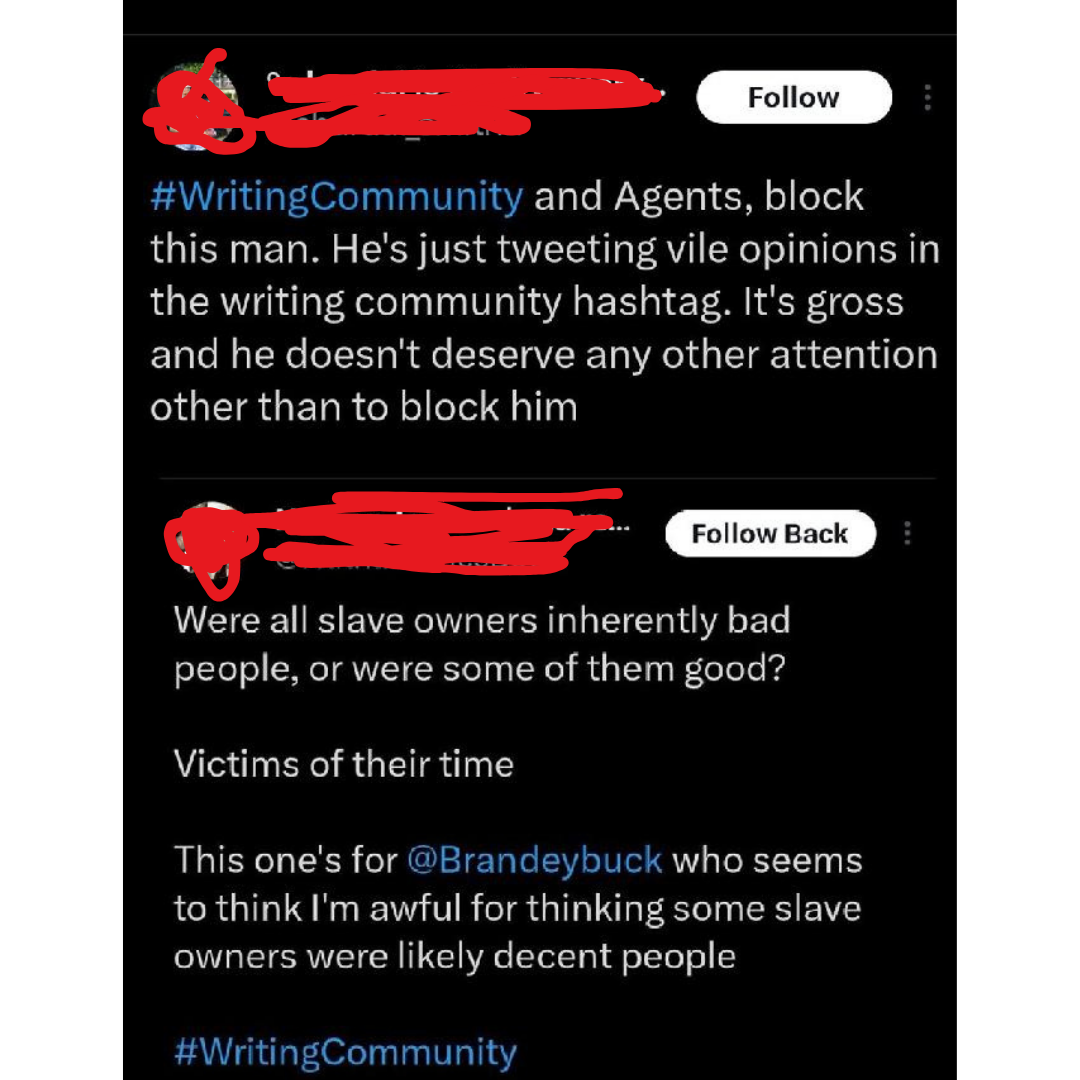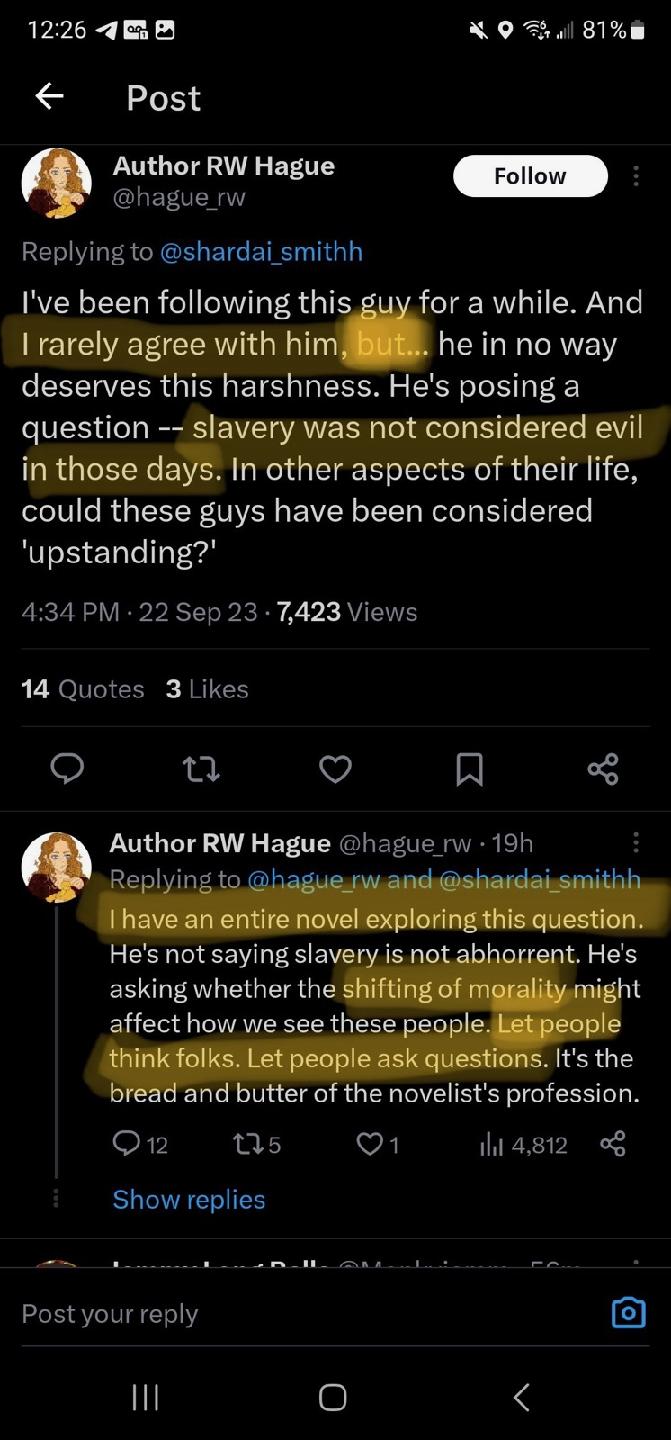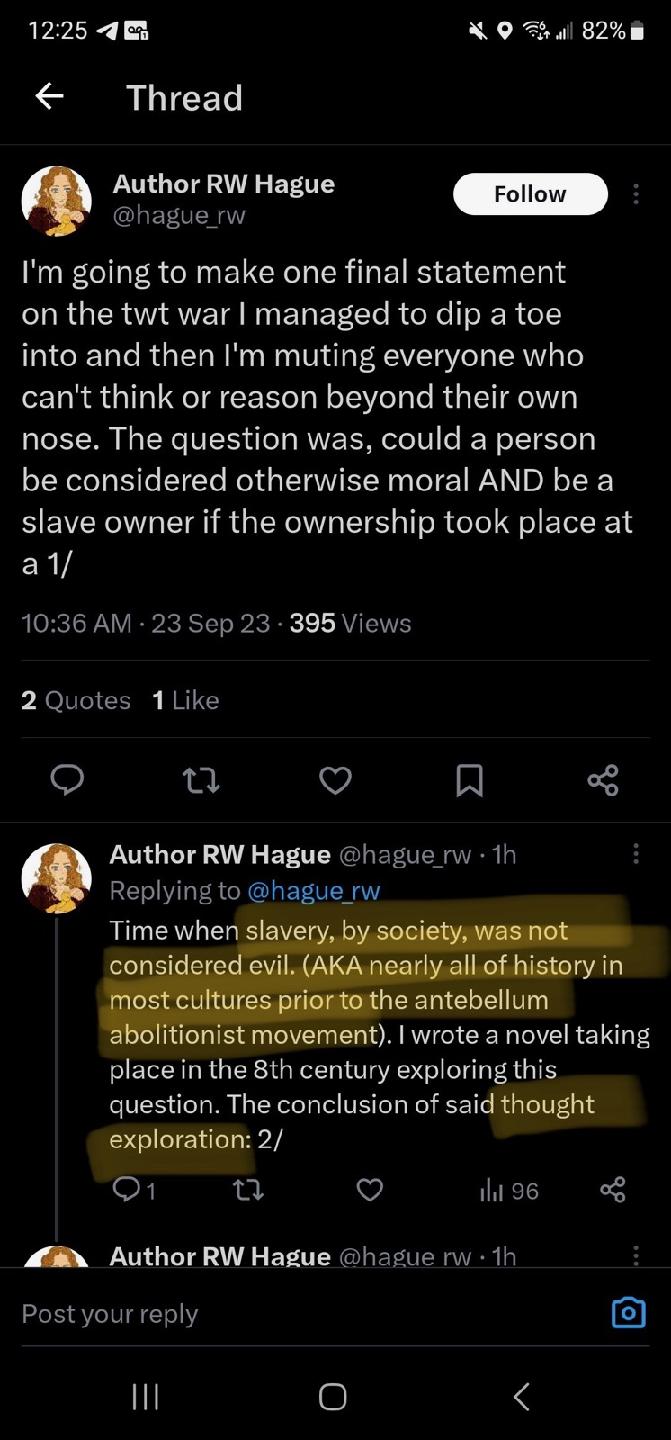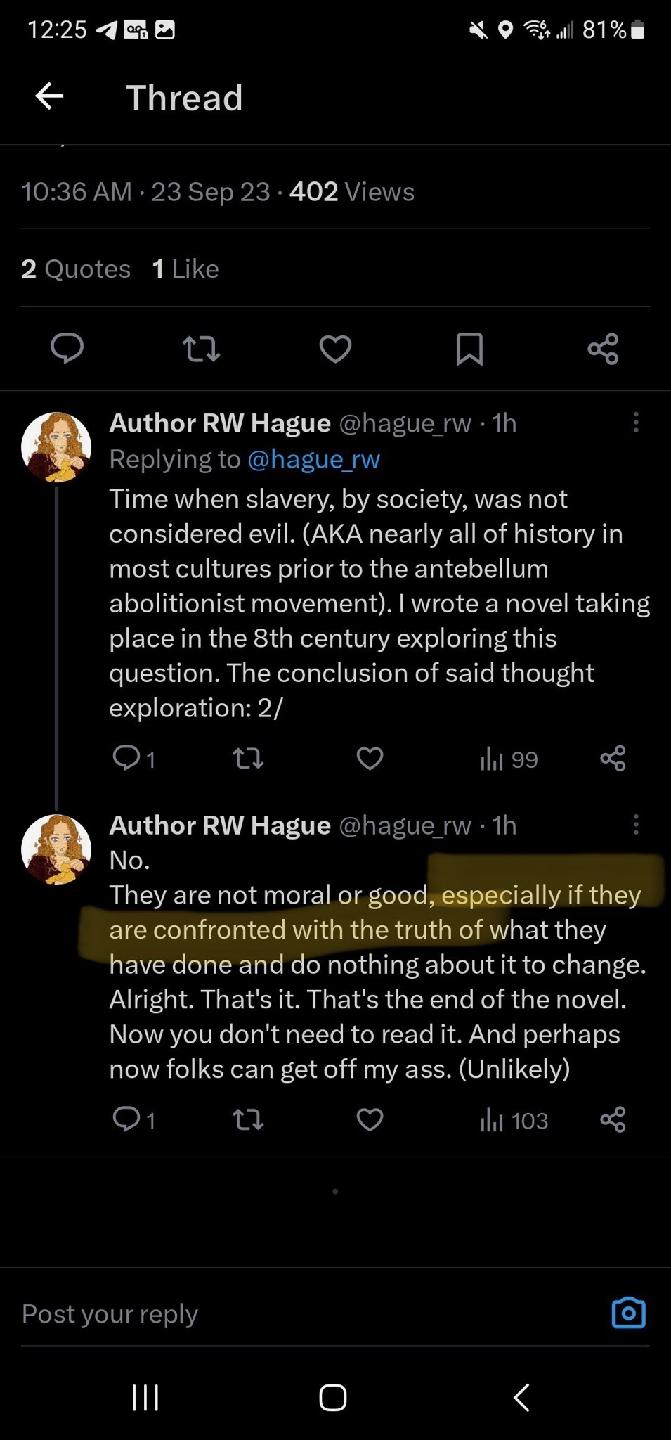|
A few weeks back, a Twitter (or X) war broke out surrounding the comments of an author with an unpopular opinion. Shocker. Like we’ve never seen that before. Time and time again this happens. It is, after all, the nature of Twitter. But the harm of this conversation did not come from an argument; it came from a group of ‘concerned individuals’ who took screenshots of the argument and sought out the real-world connections of these authors. They sought to get them canceled by publishers and agents. And they succeeded. The original poster lost a beta reader client and I lost my publisher. So you may think the rest of this essay is an opportunity to lash out at the cancel culture of Twitter or the publisher in question, but that’s not the point of what I have to say. There is a far more important issue at hand, and it goes back to the original argument in question: Can slave owners, during the time when slavery was not illegal or perceived as ‘bad,’ be considered otherwise moral people? The Twitter argument coincided with the New York decision to remove statues of Thomas Jefferson and George Washington, two founders of our nation who helped create the country many of us call home. Two American heroes with generations of admirers were brought into question. For a large swath of the population, the declaration of ‘immoral,’ especially to the point of tearing down statues is unfathomable and enraging. This author believed that yes, a person could be perceived as moral and also be a slave owner – at least when their era was taken into consideration. He then went on with this thought in the comment section, replying to others who disagreed. It was a deeply nuanced conversation and more of a thought experiment than a political stance. In no way was he saying that slavery was good – in fact, it was denounced in strong terms. It was a discussion on morality itself. Folks started retweeting his posts, demanding others contact his publisher to get him fired. And that was too far in my opinion. It was the second time that week that I had seen an author be faced with such unnecessary drama, and I could not walk past and say nothing. Well, that ticked off everyone. How dare I say that a person should not have their life destroyed for having an unpopular opinion? For exploring the question of morality – something that authors MUST do in order to write compelling characters? For conducting a thought experiment that I myself did a few years back when I wrote my Historical Fiction novel (that exists, but is not yet available for purchase). I refuse to believe that this is a bad question. After all, Aristotle defended slavery – should we throw him out entirely? Robespierre abolished slavery but was behind the arbitrary beheading of thousands. What do we do with him? Is it really a good idea for society to determine a person to be the epitome of evil for one issue? For any issue? This is a terrible idea. Regardless of the level of villainy, if we start looking at people, especially groups, as evil rather than flawed humans, we’re in for a world of hurt. Time and time again we’ve seen what happens where such tribalism leads. If we view Thomas Jefferson as the epitome of evil, then what does that make anyone who liked him as a president? Or who liked him for his economic theory? It turns them into the epitome of evil themselves, to slavery apologists. And what do people do with evil? They attack it. That, however, is just one part of the problem. When your worldview labels people as scum of the earth, it causes a person to fail to recognize themselves. Nobody thinks of themselves as evil. If they were born in the 1700s, they would have known slavery was evil and would not have committed such atrocities. Of course, statistically, this is highly improbable, but when would that matter? Oprah Winfrey once traveled to Auschwitz with Elie Wiesel, a prominent author, educator, and Holocaust survivor. There she speculated that the people who committed such atrocities had to be a ‘different kind of human.’ Mr. Wiesel, however, was quick to correct her, telling her that the people who ran these camps were just – people. Flawed, blind people, full of their own motivations and deceitful, selfish hearts. When one believes that only morally abhorrent people are capable of evil, they fail to see their own potential for atrocities. We are all of us a razor’s edge from darkness, and it is of God’s mercy that we are not all consumed. In fact, many people are currently engaging in evil acts that are approved by society without even realizing it. History will not be kind to a large swath of the population on a number of issues. Still, one cannot recognize that in themselves if they believe that only a ‘certain type of person’ is capable of atrocities. One can only pray that they are not guilty of such things themselves. After all, the scariest villain is the one we could become. Things started getting out of hand pretty quickly in ye old comment section, so I wrote a three-part tweet clarifying my opinion. So, again, I will say it: No. I do not believe slave owners are moral. As a religious person, I don’t believe ANYONE is moral. “There is none righteous, no not one.” (Rm 3:10). People are people. They are capable of both good and evil. They are also capable of being deceived – especially as it concerns their own self-righteousness. (Twitter stone-casters, I’m looking at you.)
Of course, this argument was not enough to save me – primarily because I called people nearsighted in the first tweet (which they were). As I mentioned earlier, it was a topic of some depth and people were not thinking further than the surface level. In finality, I will say this: I believe I have thoroughly explained my position above just as I did in part on Twitter earlier. A person can choose to distort my words and change my meanings – in fact, people still may try to do that even now. At this point, however, I truly believe any person who attempts to do so is willing blind and foolish. And I cannot help them with that. That is their decision and they will own it wholly.
1 Comment
|
Details
AuthorRW Hague is a registered nurse with over eight years of experience within the medical field. Using her medical expertise, she writes stories that are gritty and compelling. Archives
November 2023
|




 RSS Feed
RSS Feed